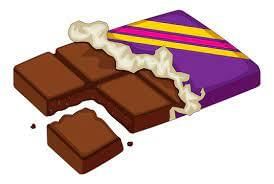Worksheet Solutions: Tables And Shares - 2 | Worksheets with solutions for Class 4 PDF Download
Q1: Choose the correct answer from the options given below.
(i) 18 = 6 x _____
(a) 2
(b) 3
(c) 4
Ans: (b)
(ii) Repeated subtraction is known as _____
(a) Addition
(b) Multiplication
(c) Division
Ans: (d)
(iii) Miya wants change for Rs 200. How many 50 rupee notes will she get in return?
(a) 3
(b) 4
(c) 5
Ans: (b)
(iv) The number by which we divide is called _____
(a) Dividend
(b) Divisor
(c) Quotient
Ans: (b)
(v) If we distribute 15 chocolates among 5 children, how many chocolates each one will get?
(a) 3
(b) 5
(c) 10
Ans: (a)
Q2: Answer the following Questions.
(i) There are 3 boxes. Each box has 18 bottles in it. How many bottles are there in all?
Ans:
Number of boxes = 3
Number of bottles in each box = 18
Total number of bottles in 3 boxes = 18 x 3 = 54
(ii) There are 15 packets of candles. Sanu paid 225 rupees for all the packets. Find the cost of 1 packet of candles?
Ans:
Number of packets = 15
Money paid = Rs 225
Cost of 1 packet = 225/15 = 15 rupees
(iii) There are 49 students in 7 rows. Each row has the same number of students. How many students will be there in each row?
Ans:
Number of rows = 7
Total number of students = 49
Number of students in each row = 49/7 = 7
(iv) If the cost of 10 notebooks is 320 rupees. Find the cost of one notebook?
Ans:
Cost of 10 notebooks = 320 rupees
Cost of 1 notebook = 320/10 = 32 rupees
(v) One metre of cloth costs 120 rupees. Lalita bought 4m cloth and paid 500 rupees. How much amount she will get back?
Ans:
Cost of 1m cloth = 120 rupees
Cost of 4m cloth = 120 x 4 = 480 rupees
Amount she will get back = 500 – 480 = 20 rupees.
FAQs on Worksheet Solutions: Tables And Shares - 2 - Worksheets with solutions for Class 4
| 1. What are tables and shares in the context of the given article? |  |
| 2. How can tables be used to organize data effectively? |  |
| 3. What are the benefits of investing in shares? |  |
| 4. How can one determine the value of shares? |  |
| 5. Are there any risks associated with investing in shares? |  |





















